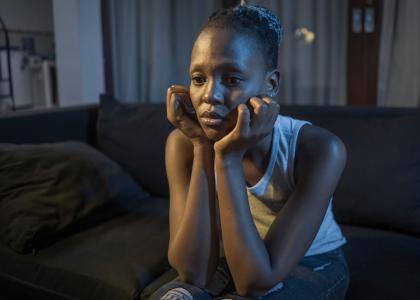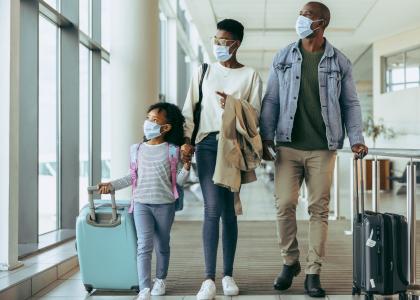SUD/MI
Family-focused vs. Drinker-focused Smartphone Interventions to Reduce Drinking-related Consequences of COVID-19

This project is a Hybrid II RCT/implementation study modifying and testing two of our alcohol smartphone interventions to address the fallout from COVID. This work is an extension of our evidence-based Addiction–Comprehensive Health Enhancement Support system (ACHESS), augmented with COVID resources.
Testing Scalable, Single-Session Interventions for Adolescent Depression In the Context of COVID-19

This project will integrate machine learning approaches and large-scale SSI research to rapidly test potent, accessible strategies for reducing adolescent major depression during COVID-19.
Chukka Auchaffi’ Natana: The Weaving Healthy Families Program to Promote Wellness and Resilience and Prevent Alcohol and Other Drug Abuse and Violence

The overall objective of the project is to test the efficacy of the community-based, “Weaving Healthy Families program (WHF)”, which aims to prevent, reduce, and postpone the secondary health effects of COVID-19, while promoting resilience and wellness (including mental health) among Native American adults and youth.
States' COVID-19 Mitigation Policies and Psychological Health, Drug Overdose, and Suicide among U.S. Adults

The overarching objective of this project is to rigorously assess how state-level COVID-19 mitigation policies have affected psychological health and related mortality from drug overdose and suicide among working age and older adults.
Come As You Are - Assessing the Efficacy of a Nurse Case Management HIV Prevention and Care Intervention among Homeless Youth

This project will use qualitative interviews to understand the following information about youth experiencing homelessness (YEH): their knowledge of and adherence to Covid-19 transmission reduction strategies, their mental health symptoms, their rates of having Covid-19 antibodies, and the relation between positive antibodies and adherence to Covid-19 transmission reduction strategies, mental health symptoms, and housing.
Unequal Parenthoods: Population Perspectives on Gender, Race and Sexual Minority Disparities in Family Stress and Health During Crises

This project aims to identify mechanisms underlying gender, racial and ethnic minority, and sexual minority disparities in parenting stress and parental well-being during COVID and this period of intense racial trauma.
Epidemiology of Alcohol Problems: Alcohol-related Disparities

This project will focus on changes in drinking patterns, substance use, and mental health measures from before to during the COVID-19 restriction period, associations between drinking patterns and COVID-19 risk behaviors, and behavioral health care need, access and utilization with attention to racial/ethnic and socioeconomic disparities.
Increasing Peer Support for OUD Recovery during COVID-19 through Digital Health: A National Randomized Controlled Trial

This project uses a randomized controlled trial of a novel mobile peer support app platform among a national sample of 1300 patients in recovery from opioid use disorders (OUDs), as an adjunct to usual care, during COVID-19.
Availability, Accessibility, and Structure of Opioid Use Disorder Treatment and Maternal and Child Health Outcomes

Using existing healthcare data, this study seeks to quantify the effects of healthcare system responses to COVID-19 on outcomes among pregnant and postpartum women with OUD and describe how COVID-19 infection influences morbidity among pregnant women with OUD.
Efficacy of a Healthy Lifestyle Intervention to Prevent Depression in Older Spousally-bereaved Adults-Supplement

This proposed Administrative Supplement aims to increase the reach, uptake, and sustainability of our existing behavioral-health intervention to accommodate older spouses bereaved by COVID-19 who are seeking prevention and self-management strategies to manage psychiatric symptoms both during and following the pandemic.